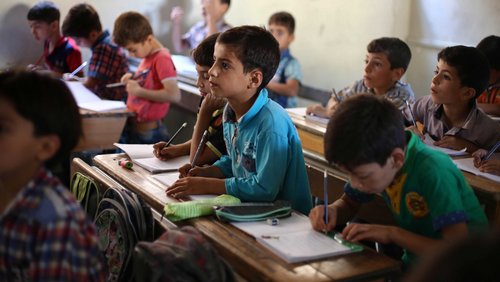By the end of 2016, Germany had registered around 1.6 million persons seeking protection (Federal Statistical Office, 2017). In order to facilitate their integration into the vocational training and labour market, information on refugees' educational degrees, vocational qualifications and competencies is of central importance.

Education Levels of Refugees: Training and Education in the Main Countries of Origin
A major challenge for many refugees on the path to integration in the labour market – in addition to the acquisition of the required linguistic skills – is the extent to which their qualifications and vocational experience match the demands of the German labour market. The latter is currently characterized by skill shortage in many professions: In 2016, every second job was posted in an occupation where there are shortages, i.e. in an occupation for which fewer than two suitably qualified unemployed persons per registered job are available nationwide (Burstedde/Risius, 2017). The challenges in filling vacancies are therefore very high in many places, and, as a result, many companies are more and more willing to consider applicants who do not have a "conventional" CV from a German perspective when looking for new future employees.
However, refugees` CVs and indicators of education, such as the number of years of school completed, can only be understood with in-depth background knowledge of the education systems in their countries of origin. The report by the German Economic Institute (IW) presents the education and vocational systems of the six countries from which the largest number of refugees come: Syria, Iraq, Afghanistan, Eritrea, Iran and Somalia. It discusses important differences between the vocational training systems in these countries and the German system. An important source of information for this purpose is the BQ-Portal, the information portal for foreign professional qualifications, which has been implemented by the German Economic Institute on behalf of the Federal Ministry of Economics and Energy (Bundesministerium für Wirtschaft und Energie, BMWi).
The study concludes with seven recommendations for counselling centres and companies as well as for the development of integration tools by public institutions and education providers:
- Provide culture-sensitive education and career guidance for refugees
- Strive for perfect placement in vocational training – consider professional prospects
- Use existing knowledge of the education system and labour market in the countries of origin
- Expand alternatives to the standard procedure for the recognition of vocational qualifications
- Further develop competence documentation procedures and use them early on
- Use step-by-step solutions
- Focus on refugees’ resources and potential

MLP Studentenwohnreport 2024
Der angespannte Wohnungsmarkt stellt Studierende weiterhin vor große Herausforderungen. Während die Mietpreissteigerungen während der Corona-Pandemie eine kleine Verschnaufpause einlegten, haben sie seitdem deutlich an Dynamik gewonnen und liegen im ...
IW
Zwei Millionen ausländische Fachkräfte in Engpassberufen
In vielen Berufen mit Besetzungsschwierigkeiten sind internationale Fachkräfte ein wichtiger Teil der Belegschaft. Zuletzt waren gut 2 Millionen ausländische Fachkräfte in solchen Engpassberufen beschäftigt. Angesichts des demografischen Wandels wird ihre ...
IW